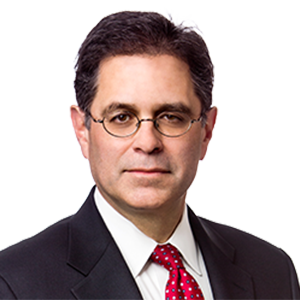On August 24, 2017, President Trump issued Executive Order 13808, which imposes significant “Russia-style” sanctions against Venezuela, intended to restrict the Venezuelan government’s access to the US financial system. The sanctions, which became effective on August 25, 2017, prohibit a range of transactions relating to the Government of Venezuela, including Petróleos de Venezuela, S.A. (PdVSA) and other entities owned or controlled by the Government of Venezuela, by US persons or within the United States. The prohibitions apply to transactions relating to new debt and equity of the Government of Venezuela, bonds issued by the Government of Venezuela, dividend payments or other distributions to the Government of Venezuela, and the purchase of securities from the Government of Venezuela. The Executive Order follows recent designations of several Venezuelan government officials. On August 25, 2017, the US Department of the Treasury, Office of Foreign Assets Control (OFAC) issued four General Licenses authorizing certain categories of activities, as well as a set of Frequently Asked Questions (FAQs) to provide guidance on these sanctions.
Background
The US government maintains targeted, list-based sanctions related to Venezuela.1 The Venezuela Sanctions Regulations were issued in July 2015 to implement the Venezuela Defense of Human Rights and Civil Society Act of 20142 and Executive Order 13692. Executive Order 13692 authorizes OFAC to designate current or former officials of the Government of Venezuela and others undermining democracy in Venezuela as Specially Designated Nationals and Blocked Persons (SDNs). Such a designation effectively cuts them off from the US financial system and prevents any US person from engaging in transactions with them. In addition, any entity owned 50 percent or more by one or more blocked persons is also blocked even if the entity is not specifically designated on the SDN List. “US persons” include entities organized under US law, US citizens and permanent residents worldwide, and any person physically located in the United States regardless of nationality.3 To date, OFAC has designated 37 individuals, including President Nicolás Maduro, as SDNs pursuant to Executive Order 13692.
Executive Order 13808 significantly expands the existing Venezuela sanctions regime, imposing sanctions that are structurally similar to the US sectoral sanctions related to Russia. The Venezuela sanctions, however, apply to the entire Government of Venezuela. For the purpose of these prohibitions, the “Government of Venezuela” encompasses any political subdivisions, agencies, or instrumentalities of the Government of Venezuela,4 including entities that are owned or controlled by, or acting on behalf of, the Government of Venezuela.5
New sanctions
Restrictions on dealings in new debt and equity
The Executive Order prohibits transactions related to, provision of financing for, and other dealings in the following by US persons or within the United States:
- Debt of PdVSA, issued on or after August 25, 2017, with a maturity of greater than 90 days;6
- Debt of the Venezuelan government (not including PdVSA), issued on or after August 25, 2017, with a maturity of greater than 30 days;7 and,
- Equity of the Government of Venezuela (including PdVSA), issued on or after August 25, 2017.8
“Debt” includes bonds, loans, extensions of credit, loan guarantees, letters of credit, drafts, bankers acceptances, discount notes or bills, or commercial paper.9 “Equity” includes stocks, share issuances, depository receipts, or any other evidence of title or ownership.10 OFAC, however, issued General License 2, authorizing transactions covered by these provisions if the only Venezuelan government entity involved is Citgo Holding, Inc. or any of its subsidiaries.
The prohibitions relating to debt extend to rollover of existing debt, if such rollover results in the creation of new debt with a maturity of longer than 90 days (with respect to PdVSA) or longer than 30 days (with respect to the rest of the Government of Venezuela).11 The prohibition applies only to debt with respect to which the Government of Venezuela (including PdVSA as applicable) is an obligor.12 For example, US persons are not prohibited from (1) dealing in a loan exceeding the applicable authorized tenor that is issued after the sanctions effective date if such loan is provided by the Government of Venezuela to a non-sanctioned third-party; (2) dealing with the Government of Venezuela as underwriter on new debt of a non-sanctioned third party exceeding the applicable authorized tenor; (3) accepting payment under a letter of credit with terms exceeding the applicable authorized tenor that is issued, advised, or confirmed by the Government of Venezuela; or (4) extending credit for longer than the applicable authorized tenor to non-sanctioned parties for the purpose of purchasing goods or services from the Government of Venezuela, so long as the Government of Venezuela is not the direct or indirect borrower.13
As with Russian debt,14 drawdowns and disbursements in which repayment terms exceed the applicable authorized tenor are not prohibited if the terms of such drawdowns and disbursements (including the length of the repayment period, the interest rate applied to the drawdown, and the maximum drawdown amount) were contractually agreed to prior to the sanctions effective date and are not modified on or after the sanctions effective date.15 US persons may not deal in a drawdown or disbursement initiated after the sanctions effective date with a repayment term exceeding 90 days (for PdVSA) or 30 days (for the rest of the Government of Venezuela) if the terms of such drawdown or disbursement were negotiated on or after the sanctions effective date.16 OFAC would construe such a newly negotiated drawdown or disbursement as a prohibited extension of credit.17
Restrictions on dealings in bonds
Executive Order 13808 also prohibits transactions related to, provision of financing for, and other dealings in bonds of the Government of Venezuela (including PdVSA) issued prior to August 25, 2017 by US persons or within the United States. General License 3, however, authorizes transactions related to, providing financing for, or otherwise dealing in (1) 76 Venezuela-related bonds and (2) bonds issued prior to August 25, 2017 by US persons owned or controlled, directly or indirectly, by the Government of Venezuela (e.g., Citgo Holding, Inc. and its subsidiaries).
Restrictions on the purchase of securities from the Government of Venezuela
The Executive Order prohibits the purchase, directly, or indirectly, by US persons or within the United States, of any securities from the Government of Venezuela, except for securities qualifying as (1) new debt of PdVSA with a maturity less than or equal to 90 days or (2) new debt of any other party of the Venezuelan government of less than or equal to 30 days.18 General License 2, however, authorizes otherwise prohibited securities transactions if the only Venezuelan government entity involved is Citgo Holding, Inc., or any of its subsidiaries.
Restrictions on dividend payments or other distributions
The Executive Order prohibits transactions related to, provision of financing for, and other dealings in dividend payments or other distributions of profits to the Venezuelan government by any entity owned or controlled, directly or indirectly, by the Venezuelan government, including distributions from Citgo Holding, Inc. and its subsidiaries, by US persons or within the United States.19
Additional authorized transactions
OFAC issued General License 1, which provides a 30-day safe harbor for all otherwise prohibited transactions under the Executive Order that are ordinarily incident and necessary to the wind down of contracts and other agreements in place before August 25, 2017. This safe-harbor period ends on September 24, 2017, and anyone participating in transactions authorized by this General License must submit a report to OFAC within 10 business days of the transaction.
OFAC also issued General License 4, which authorizes transactions related to, the provision of financing for, and other dealings in new debt related to the exportation or reexportation of agricultural commodities, medicine, medical devices, or replacement parts and components for medical devices, from the United States or by a US person, and destined for Venezuela.
Additional considerations
The Executive Order is not a blocking action.20 It prohibits specified transactions by US persons or within the United States, but does not require US persons to block the property or interests in property of the Government of Venezuela. Further, US financial institutions may continue to maintain correspondent accounts and process US dollar-clearing transactions for the Government of Venezuela, so long as those activities do not involve engaging in transactions related to, providing financing for, or otherwise dealing in transaction types prohibited by the Executive Order.21
Although not explicitly set forth in the Executive Order, OFAC likely would take the position, consistent with its other sanctions programs, that it is unlawful for US persons not only to take action that directly violates the sanctions, but also to “facilitate” the actions of others, even non-US persons, that would be prohibited for the US person to engage in directly. Further, as with other OFAC sanctions programs, all persons, including non-US persons, may be subject to liability for evading, causing a violation of, or attempting, or conspiring to violate any of the prohibitions.22
US sanctions are continually evolving and it is incumbent on all US companies that do business in and with Venezuela to ensure their continued compliance with US sanctions. This includes conducting screening and due diligence on business partners, customers, and other third parties in Venezuela, and insisting on contractual provisions that establish “wind down” procedures for transactions or operations that become impermissible.
* * *
We will continue to closely monitor these developments and issue additional briefings as warranted.
1 For additional details, see our previous briefing. The Venezuela Sanctions Regulations are codified at 31 C.F.R. Part 591.
2 Pub. L. 113-278.
3 Exec. Order 13808 § 3(c).
4 Id. at § 3(d).
5 OFAC FAQ 513.
6 Exec. Order 13808 §1(a)(i).
7 Id. at §1(a)(ii).
8 Id. at § 1(a)(ii).
9 OFAC FAQ 371.
10 OFAC FAQ 511.
11 OFAC FAQ 511.
12 OFAC FAQ 516.
13 Id.
14 See OFAC FAQ 394.
15 OFAC FAQ 514.
16 Id.
17 Id.
18 Exec. Order 13808 §1(b).
19 Id. at §1(a)(iv).
20 OFAC FAQ 508.
21 OFAC FAQ 511.
22 Exec. Order 13808 § 2.





